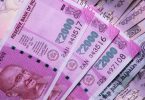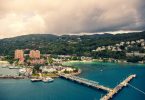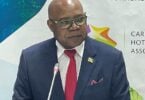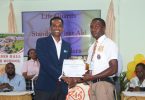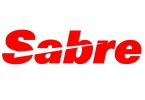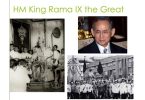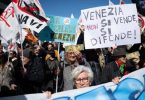NEW YORK, NY – Millions will line the streets of New York City this Sunday and endure cold and blustery conditions to watch 50,000-plus runners participate in the 44th annual New York City Marathon.
Daytime highs will settle in the upper 40s, and there will be plenty of sunshine. However, gusty winds could make an already challenging event more difficult.
Winds on Sunday will be blowing out of the north or northwest with speeds anywhere between 15-25 mph and gusts of 35 or better said AccuWeather.com Meteorologist Dave Dombek.
“To me, it looks like its a case where all day on Sunday it’s windy,” he said.
Dombek added that marathoners will likely face a crosswind as they move north along the course, but shouldn’t have to run directly into the wind for any significant portion of the marathon.
The most favorable temperatures for running a marathon are between 45-65 F according to Mindy Solkin, a professional running coach and founder of The Running Center, a training studio for runners, which operates in New York City and Atlantic City.
For windy conditions, runners must know the direction the wind is coming from and calculate where it will be on the course, she said.
“Use the wind at your back to your benefit to make up for the slowdown when wind is in your face,” Solkin said. “In other words, the wind in your face will slow you down [and] the wind at your back will push you.”
Solkin has run six marathons, including the New York City Marathon four times. As part of her coaching, she frequently explains to her classes that they may have to adjust their goals because what they have trained for may not occur thanks to certain weather conditions.
In extremely warm conditions runners may have to slow down and walk to ovoid dehydration and the threat of overheating. When it’s very cold, runners must be more vigilant about finding the proper balance of clothing to wear, because while you don’t want to overdress, you don’t want to put your body at risk for hypothermia by leaving parts of the body exposed.
While it will not be warm on Sunday, runners will become warmer as they continue to move along the course. Still, as the day goes on, it’s a good idea to keep an extra layer tied around your waist, Solkin said.
“As your body heats up, you’ll be warm, but the air is still cool,” Solkin explained.
Start times for the marathon are broken up into four different waves, which is geared towards runners projected finish time or pace per mile. The first wave, which includes professional male runners begins at 9:40 a.m. and the group of professional women runners will start at 9:10 a.m.
In 2013, more than 50,000 entrants completed the 26.2 miles through the five boroughs and across the finish line in Central Park. The average finish time last year was four hours and 18 minutes according to the marathon’s website.
At the start of the race, highs will be near 40 F, but AccuWeather RealFeel temperatures could be in the upper 20s, according to Dombek.
Cooler weather means that runners will likely not need as much hydration as compared to warmer weather when they’re sweating, said Dr. Melissa Leber, assistant professor of sports medicine at the Icahn School of Medicine at Mount Sinai Health System in New York City.
“The ideal athlete would already be warm before they go outside for their run so they would have done some activity inside to get warm, before they start running outside,” said Leber, who’s also the director of the emergency sports medicine department at Mount Sinai St. Luke’s and Mount Sinai Roosevelt Hospital.
To stay warm prior to their starting time, runners will wear lots of layers and have something to cover their head to retain body heat, Leber said. Additionally, Leber said they will constantly move around, doing activities such as cardio work and high knee exercises.
(eTN): Cold, windy conditions in store for NYC Marathon | re-post license | post content





